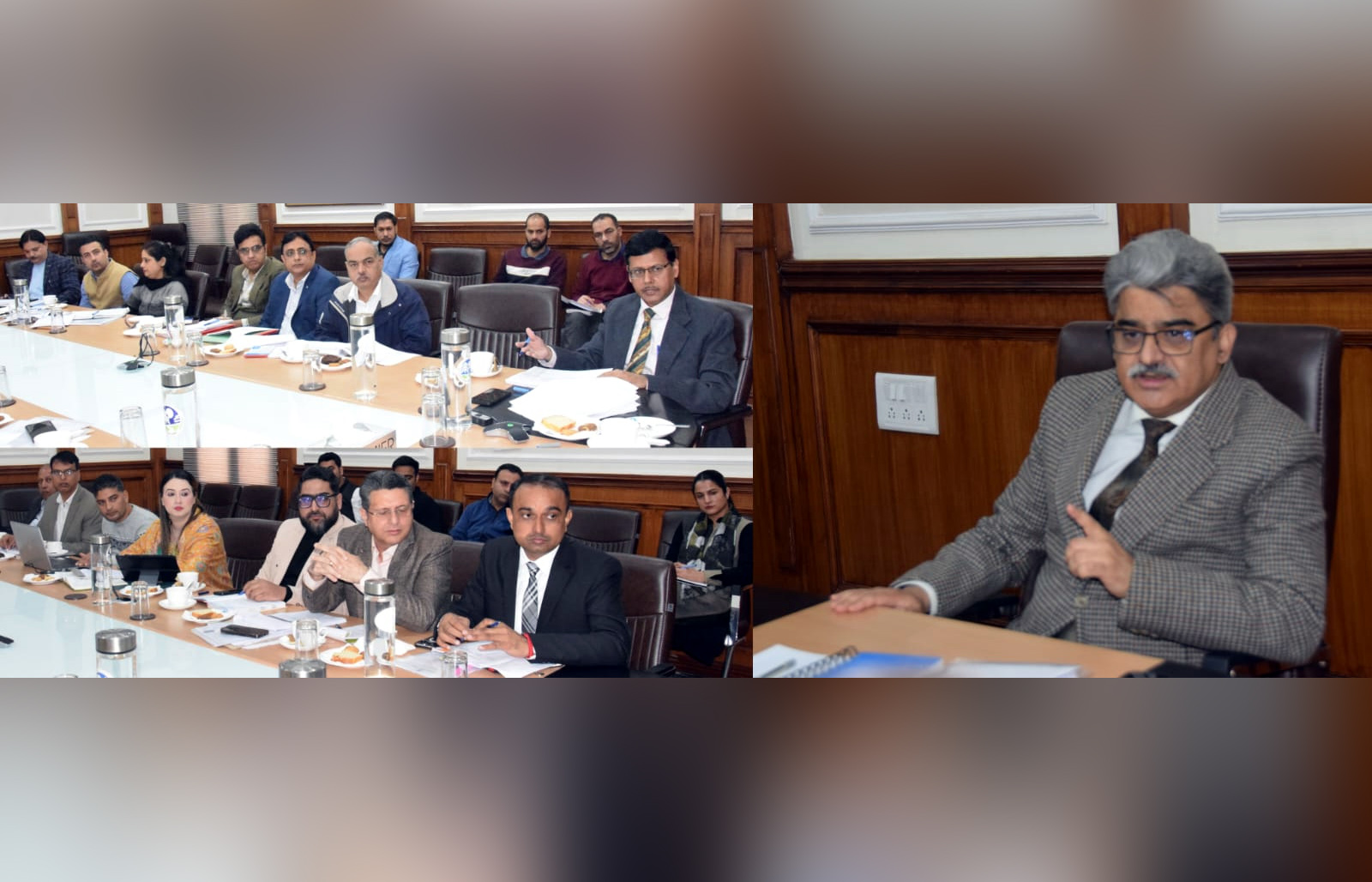- Also evaluated the execution of welfare initiatives for various categories of migrants
JAMMU, Dec 1: Chief Secretary Atal Dulloo convened an extensive meeting with the Department of Disaster Management, Relief, Rehabilitation & Reconstruction (DMRR&R) to review its efforts in disaster mitigation in J&K.
Attendees included the Principal Secretary of Home and DMRR&R Departments, Divisional Commissioners from Kashmir and Jammu, the Relief Commissioner, and other relevant officials from the Department.
Join Daily Excelsior on WhatsApp for the Latest News
Dulloo seized this opportunity to urge the Department to enhance their preparedness by developing action plans tailored for the various disasters to which the UT is susceptible. He called for the Emergency Operation Centre (EOC) to be operational by the close of the current fiscal year, emphasizing its vital role during disaster situations.
He further highlighted the expeditions undertaken to investigate Glacial Lake Outburst Floods (GLOF) by visiting various mountain lakes in the region. Additionally, he stressed the importance of training students and volunteers to boost their effectiveness in relief operations.
During the meeting, Principal Secretary DMRR&R, Chandraker Bharti, presented an overview of the department’s activities and accomplishments, including the reinforcement of disaster management authorities at the UT, Divisional, and District levels through the deployment of necessary personnel.
He also noted that the District Disaster Management Plans (DDMPs) for 2024-25 had been updated across all 20 districts, alongside plans specific to hazards such as the Heat Wave Action Plan, Flood Management Action Plan, and a Cold Wave Action Plan, with the Landslide Management Plan currently under development.
It was reported that a temporary EOC has been established in Srinagar, with a permanent facility in progress at Ompura, Budgam.
The Department has also rolled out an Emergency Response Support System (ERSS) with a toll-free number, 112, to field disaster response calls.
Additional discussions covered various initiatives by the Department, including the Common Alert Protocol (CAP), which integrates alert-generating agencies (IMD, CWC, INCOIS, DGRE, FSI) to disseminate disaster alerts through TSPs, television, radio, cable TV, social media, Indian Railways, and coastal sirens. The meeting revealed that a total of 118 alerts have been shared thus far.
Earlier in the meeting, a presentation was delivered regarding the benefits and plans established for the welfare of different migrant categories from the Kashmir and Jammu divisions.
The status of 6000 transit accommodations for Kashmiri Pandit (PM Package) employees was thoroughly reviewed, alongside the recruitment progress of other designated positions.
Moreover, it was disclosed that these migrants are being included under the National Food Security Act (NFSA) to access various social security benefits, including pensions for the elderly and widows, as well as eligibility under PM Kisan, Ayushman Bharat, and other self-employment and skill development opportunities.
The meeting also acknowledged the advancements made in outreach campaigns aimed at encompassing PoJK and other West Pakistani Refugees (WPRs) under a designated Rehabilitation Package.
Various developmental activities, such as the establishment of ‘PoJK Bhawan’ at Suketar and a Community Hall at Jagti, along with other relief measures for displaced individuals, were evaluated by the Chief Secretary for enhanced effectiveness.


Leave a Reply